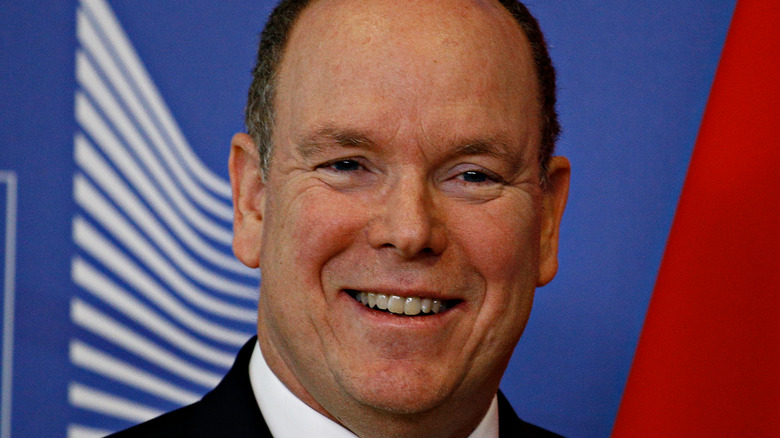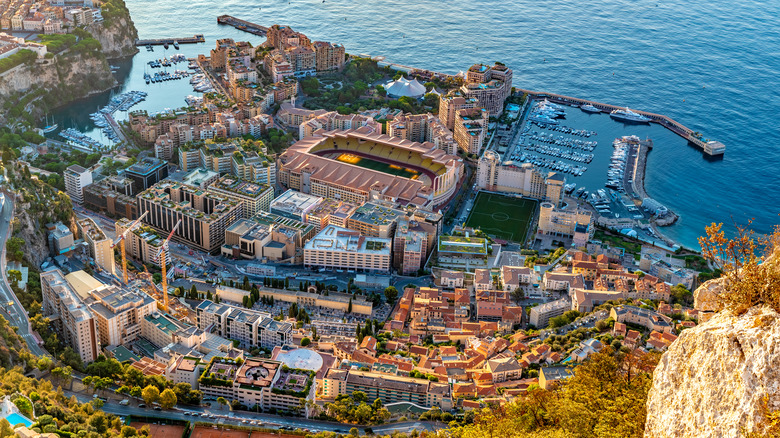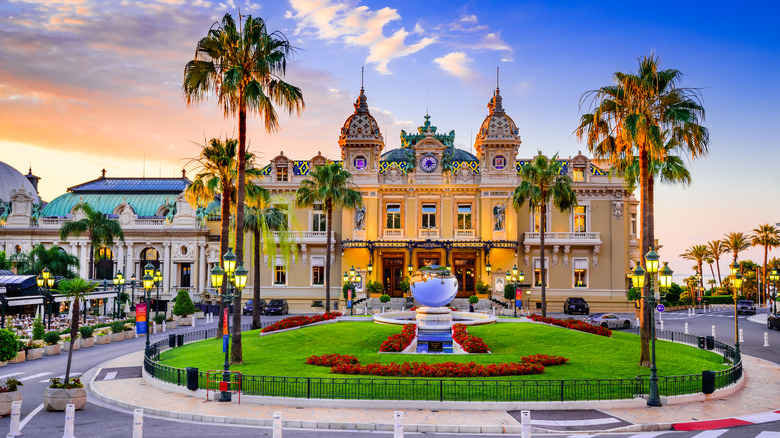The Real Reason Monaco Doesn't Have A King Or Queen
Europe is home to many of the handful of countries that are still governed, often ceremonially, by a monarch. Denmark, Norway, Sweden, the United Kingdom, Spain, the Netherlands, and Belgium are all kingdoms, and their sovereign is a king (or just as often, a queen), although in all of those cases the sovereign is merely a ceremonial figurehead with no real political power (via Independent).
However, nestled between the Southern Alps and the Mediterranean Sea, surrounded almost entirely by France, is the tiny (0.8 square mile) Monaco. Unlike nearby European monarchies, Monaco's sovereign has actual political power, according to Global Edge, although he shares it with an elected government.
Similarly, unlike its neighboring monarchies, Monaco is not a kingdom but a principality — which is to say, it is ruled not by a king (or queen), but a prince: in this case, Albert II, Prince of Monaco.
A brief history of Monaco
Monaco's history begins with the Rock of Monaco, a 200-foot-tall rocky outcropping overlooking a Mediterranean harbor that made for a great place for a fortress; and indeed, it was just that, for centuries, first used by the Greeks and later, the Romans, according to iExplore. Today, the rock is home to the prince's palace and is the oldest part of the country.
In 1297, the powerful Grimaldi family settled in the region, and in 1419, officially took possession of the country from France. The rest, as the saying goes, is history — and in this case in the most literal possible sense.
Save for a brief period where French revolutionary troops occupied the country between 1793 to 1814, the country has been more or less independent since then, ruled by its hereditary monarch. However, due to its small size, the country has had to rely on its neighbors for military protection, and today that duty is handled by France.
Carefully navigating alliances
So why is the sovereign of Monaco a prince and not a king? As Vogue explained, Monaco's small size and vulnerability have meant that, historically, it has had to rely on the help of other nations for its self-preservation. As such, its rulers have used the word "prince" to style themselves, the implication being that it's easier to form and maintain alliances if a ruler needing help doesn't try to throw his weight around.
Prince Albert II himself explained that the title of "prince" for the ruler of his country has been more or less official since France recognized it centuries ago.
"Monaco is a principality ... and so therefore the title of prince, which was taken back in the 17th century by Prince Henry II, made it so that Monaco was recognized as a principality by the king of France," he said.
Prince Albert was also responsible for a change to Monaco's constitution. Prior to his reign, the rules stated that the royal line of succession could not pass through a female heir. However, the rules have since been rewritten to allow a Princess to rule the country if her father dies without producing a male heir, according to BBC News. Unfortunately for his firstborn, 7-year-old Princess Gabriella, she has a younger twin brother, Prince Jacques, who will likely someday take his father's place on the Monegasque throne.


